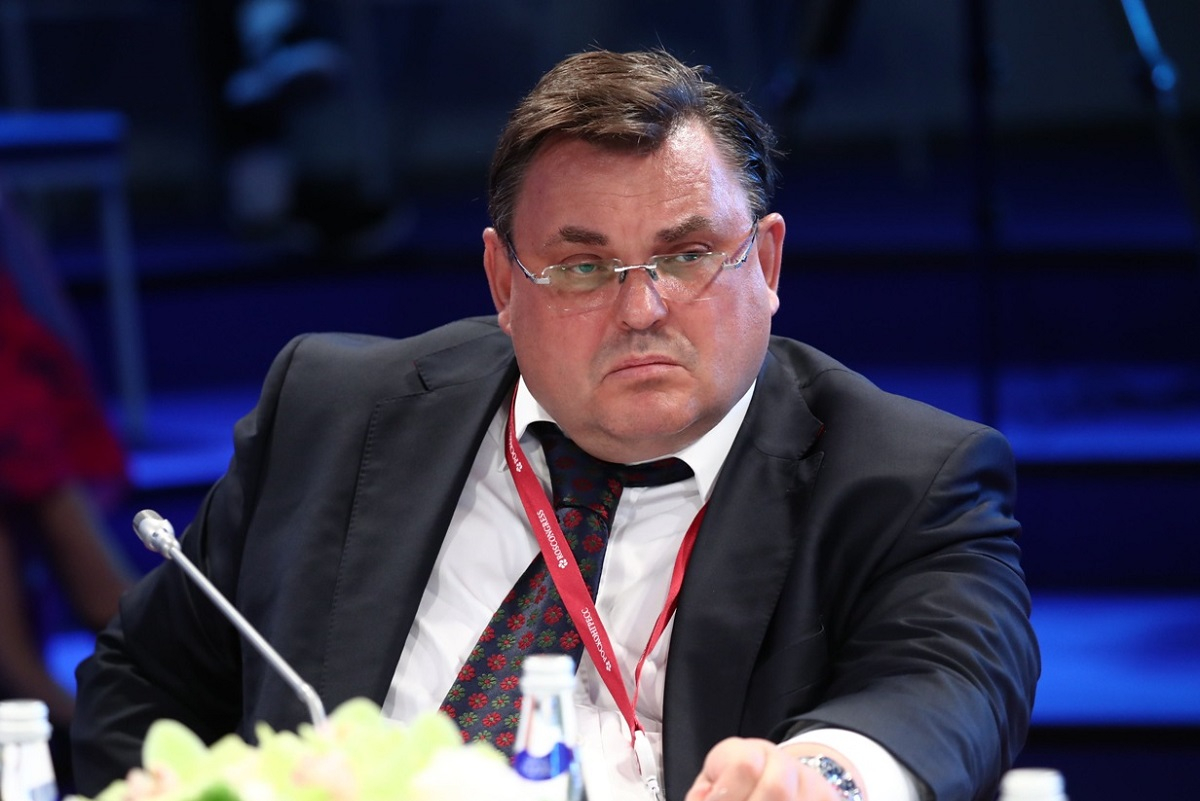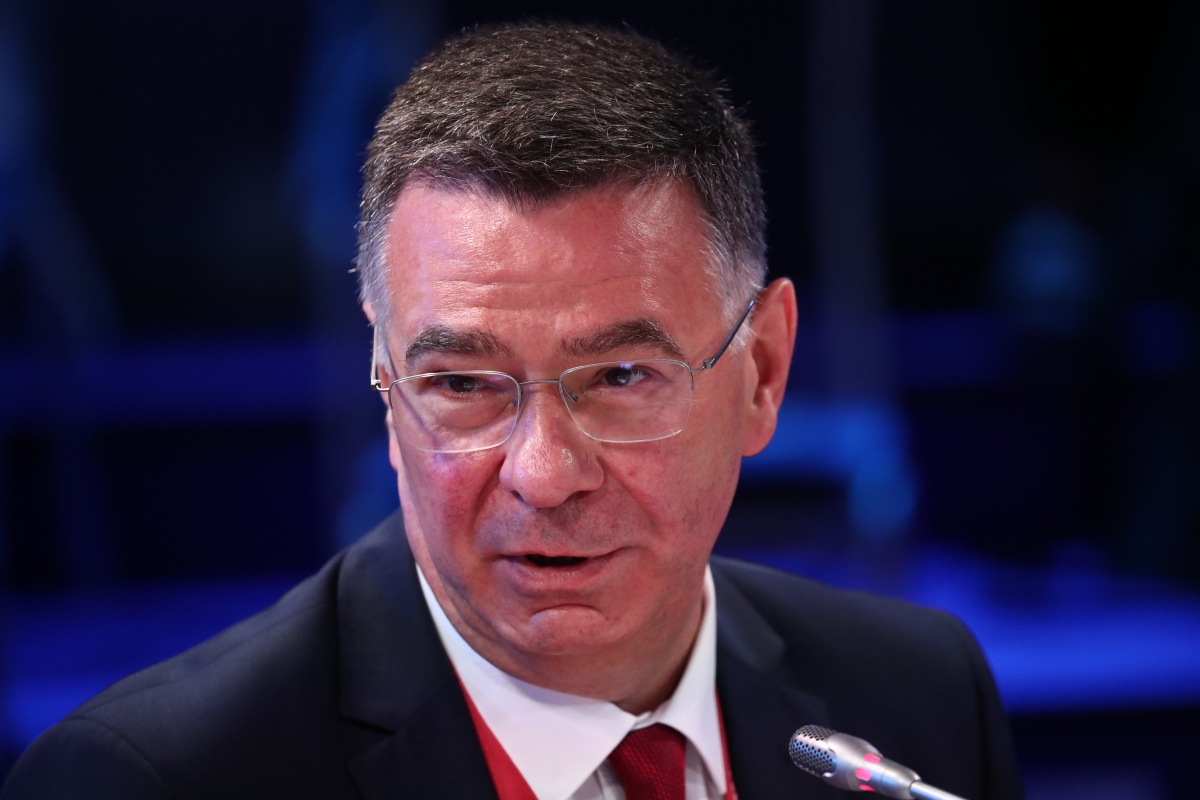St Petersburg University presents a revolutionary BRICS investment arbitration project at the St Petersburg International Economic Forum
St Petersburg University has presented a project about the institute of arbitration for the BRICS countries at the St Petersburg International Economic Forum. Its primary role is to handle investment disputes.
The initiative was discussed at the ‘Investment Dispute Settlement in BRICS: Prospects for a New Arbitration Institute’ session. The people taking part in the discussion included Minister of Justice of the Russian Federation Konstantin Chuychenko, Deputy Minister of Foreign Affairs of the Russian Federation Aleksandr Pankin, Deputy Prosecutor General of the Russian Federation Pyotr Gorodov, Deputy Director of the Institute for Mathematical Research of Complex Systems at Moscow State University Katerina Tikhonova, Dean of the Faculty of Law at St Petersburg University Sergei Belov, CEO of the Russian Direct Investment Fund (RDIF), representative of the Russian Federation at the BRICS Business Council Kirill Dmitriev and CEO of ESN Group Grigory Berezkin. The discussion was moderated by the Rector of St Petersburg University and Corresponding Member of the Russian Academy of Sciences Nikolay Kropachev.
Launching the discussion, the Rector of St Petersburg University, Nikolay Kropachev, outlined two problems for resolving investment disputes at the international level. The first is the imbalance of interests between investors and states; the second is the limited range of persons involved in resolving investment disputes. The professional community has also criticised the inability of arbitrators on many occasions to find a compromise between the economic rights of investors on the one hand, and the public interest and public obligations of the state on the other. The Rector also pointed out that the pandemic made it necessary to review the mechanisms for protecting the state's investments. Countries now face the challenge of reviving trade, business and investment and revitalising their economies after a year of stagnation.
To solve these problems, St Petersburg University has initiated the development of an arbitration institute within BRICS that would allow for the supranational resolution of disputes between representatives of different jurisdictions. The idea was supported by Russian President Vladimir Putin, who instructed that details of the initiative be analysed and discussed thoroughly.
The Dean of the Faculty of Law at St Petersburg University, Sergei Belov, one of the authors of the university's initiatives, explained that the new arbitration institute would hear investment disputes involving the BRICS countries and any other countries that have joined the scheme. The new arbitration institute will be based on two conventions on mutual protection of investments and the establishment of an arbitration institute. Sergei Belov noted that the principal difference of the new BRICS investment arbitration institute is that it will become delocalised and independent of the national courts at the place where disputes are heard.
The BRICS countries have a variety of legal systems, and the establishment of an arbitration institution on such a platform could facilitate harmonisation and compromise, reconcile different approaches and develop a solution that would be equally acceptable in different legal systems.
Sergei Belov, Dean of the Faculty of Law at St Petersburg University
Experts from St Petersburg University have also proposed that the new arbitration institute should operate remotely. The authors of the initiative propose to move the procedure online and hear disputes offline only in exceptional cases. According to the developers, this will simplify the procedure and make it less costly.
Other proposed innovations for the BRICS investment arbitration institute include a mandatory mediation procedure preceding each dispute, internal appeal mechanisms for each decision and the possibility to enforce the judgements autonomously from national courts.
The BRICS Arbitration is expected to provide a useful mechanism for a scientific and technological agenda. The BRICS countries particularly need to invest in innovative, scientific and technological projects that drive the development of modern economies amidst a pandemic.
The Deputy Director of the Institute for Mathematical Research of Complex Systems at Moscow State University Katerina Tikhonova noted that should the proposed international arbitration mechanism be implemented, the scientific and technological sector, in particular breakthrough technologies and SME companies, based on leading scientific schools, could become particularly interesting for the investment and development of innovative economies.
The BRICS countries will be able to develop key breakthrough technologies and supertasks independently, from theoretical foundations to large-scale production, creating a quantum computer for machine learning and artificial intelligence for example.
Katerina Tikhonova, Deputy Director of the Institute for Mathematical Research of Complex Systems at Moscow State University
This could support small and medium-sized businesses as well as scientific schools, providing innovative solutions. Nikolay Kropachev remarked that this is also relevant for St Petersburg University, which is about to launch the construction of the innovative science and technology centre ‘The Neva Delta’: ‘We have signed ten agreements with our partner-companies during the Economic Forum, and we are ready to work for the benefit of investors, Russia and, of course, St Petersburg University.’
All participants supported the initiative of St Petersburg University and stressed its importance in attracting foreign investment in major infrastructure projects, which is essential for the long-term development of the BRICS countries.
Minister of Justice of the Russian Federation Konstantin Chuychenko commented on the St Petersburg University project: ‘This is a revolutionary and exciting initiative. It is the way forward and it is necessary to take advantage of this opportunity. Russia ought to be ahead of the rest of the world in this field. The Ministry of Justice is ready to join the project and provide full assistance.’
The next stage of discussion on the initiative will be held at the international level, with the participation of business and government representatives from the BRICS countries.





